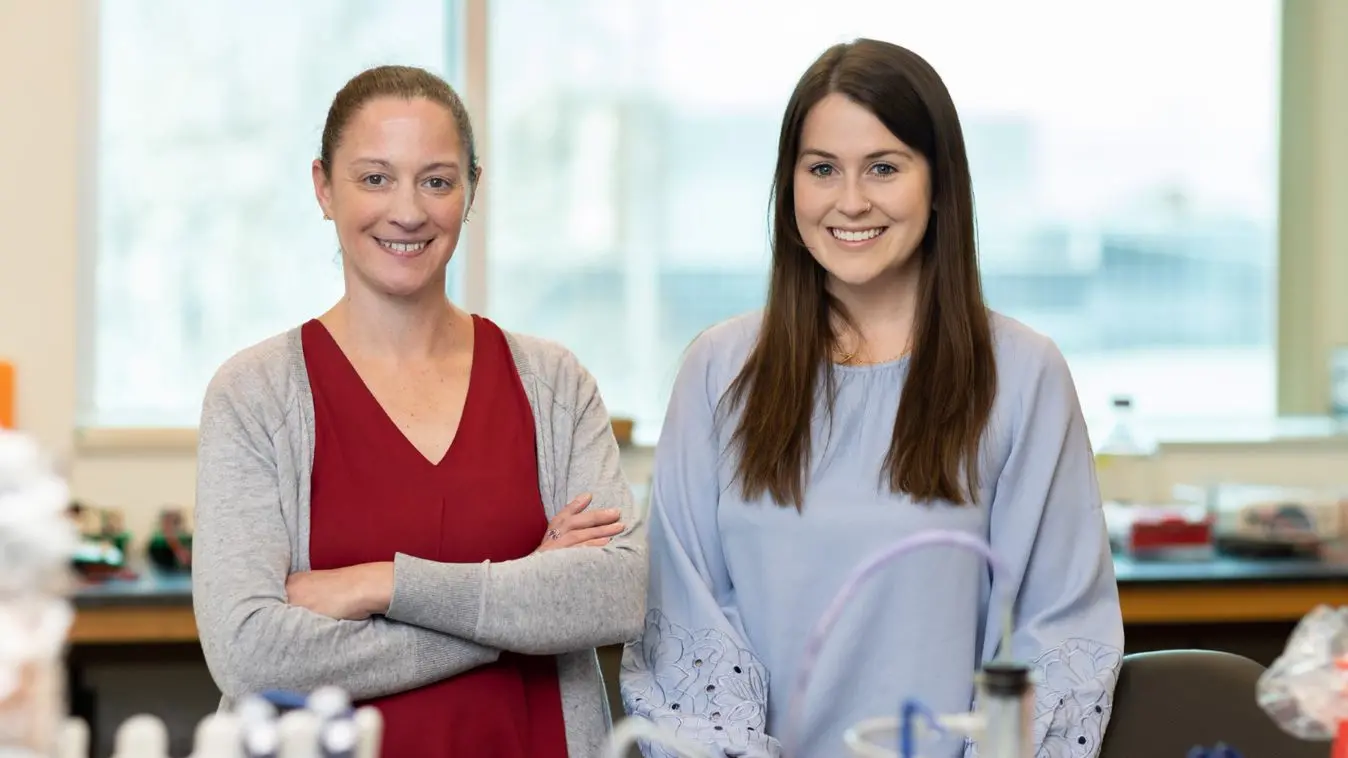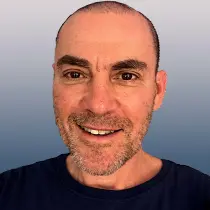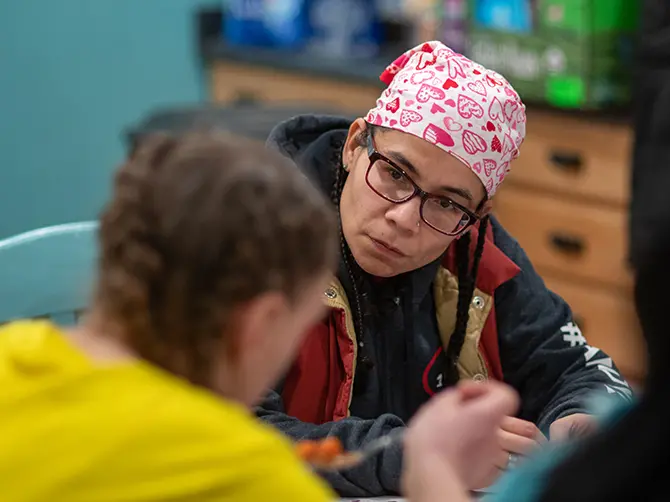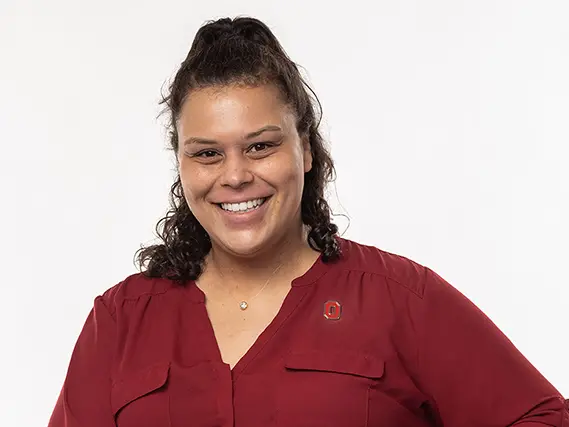Why Pelotonia makes this cancer researcher cry
Abby Zalenski’s grandfather lived thanks to a medicine funded by the charity ride, and that put her on a trajectory to help others.

Pelotonia-funded research by Monica Venere, left, and Abby Zalenski focused on brain tumors. (Photo by Jodi Miller)
Abby Zalenski ’17, ’19 MA, ’21 PhD discovered the lifesaving power of science as a youngster after her grandfather’s leukemia diagnosis.
The initial treatment of Ted Zalenski, whom his nine grandchildren affectionately call “Dzia Dzia,” Polish for “grandfather,” wasn’t working, and his prognosis was bleak. “I remember him saying that could be his last Christmas, and that was hard to hear,” says Zalenski, in middle school at the time.
Then came an opportunity to enroll in a clinical trial at Ohio State. Ted Zalenski was treated with ibrutinib, an immunotherapy drug developed in part with funding from Pelotonia, the annual cycling event that has raised more than $236 million for cancer research at The Ohio State University Comprehensive Cancer Center–Arthur G. James Cancer Hospital and Richard J. Solove Research Institute.
“That saved his life,” Zalenski says of the trial, “and we were so grateful. That inspired and motivated me to do this for other patients and their families.”
Cancer research and Pelotonia quickly became important aspects of Zalenski’s Ohio State experience. As an undergrad and grad student, she worked in the lab of Assistant Professor of Radiation Oncology Monica Venere, whose research uses the cell biology of glioblastomas, an aggressive brain tumor, to discover new targeted treatments.
“She has such a will to keep doing and working, and that held up during her entire training period,” Venere says of Zalenski. “It was so rewarding to work with someone with that can-do attitude.”
A two-year Pelotonia Fellowship funded Zalenski’s work in Venere’s lab. She has ridden the 100-mile Pelotonia several times with her father, Fred Zalenski. Her mother and grandfather, forever grateful for his own connection to Pelotonia, wait at the finish line.
“When I was introduced to the Pelotonia community, I was mesmerized by it, and I can’t attend an event without crying,” Zalenski says. “I owe so much to Pelotonia. Everyone has such big hearts, and they really believe in the scientists at Ohio State and their research.”
She says, in addition to research skills, the Pelotonia fellowship helped her learn to communicate complicated science in simple terms. This led to her current position as associate scientific director at The Lockwood Group, a medical communications consulting firm.
“But one of the best things I learned in the lab is to stay the course, even when things aren’t working,” she says. “Stay optimistic and believe in your ability.”



